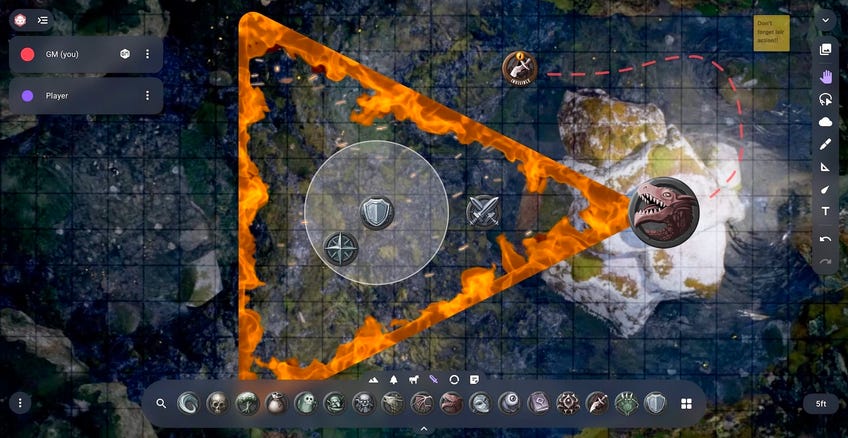8 best virtual tabletops for D&D (and other RPGs)
Let’s sort through this sea of VTTs.
It almost seems like each month there are more virtual tabletops (VTTs) to choose from. The older, most popular virtual tabletops for playing D&D and other RPGs, such as Roll20 and Fantasy Grounds, are having to contend with an army of newer contenders that don’t always offer more features, but gain followers because they are simpler and more focused on specific styles of play.
Some GMs and players are going to want fully 3D graphics in a video game-like environment loaded with visual options, while others prefer 2D maps with an equally massive array of options. Other groups just want simple map displays with basic options.
Best virtual tabletops for D&D
Most VTTs for D&D and other RPGs are not one-stop shops when it comes to the needs of the gaming group. With the exception of Roll20, almost all virtual tabletops lack an internal video or audio chat feature, and many do not have an integrated digital character sheet or an internal dice roller. If you’re using one of the many lighter VTTs, you will need to combine it with other programs like Discord, Zoom or Skype to bridge the communication gap and provide dice rolls at the virtual table. You will also need to have a window open on your computer that displays your character sheet. Either that or - perish the thought - have a physical character sheet printed on paper in front of you.
There are dozens of virtual tabletop options out there at this point. This list below is not intended to be a comprehensive one listing all the VTTs available right now, but rather a glimpse at some of the best virtual tabletops for playing D&D (or whatever RPG you prefer).
1. Roll20
King of the Hill
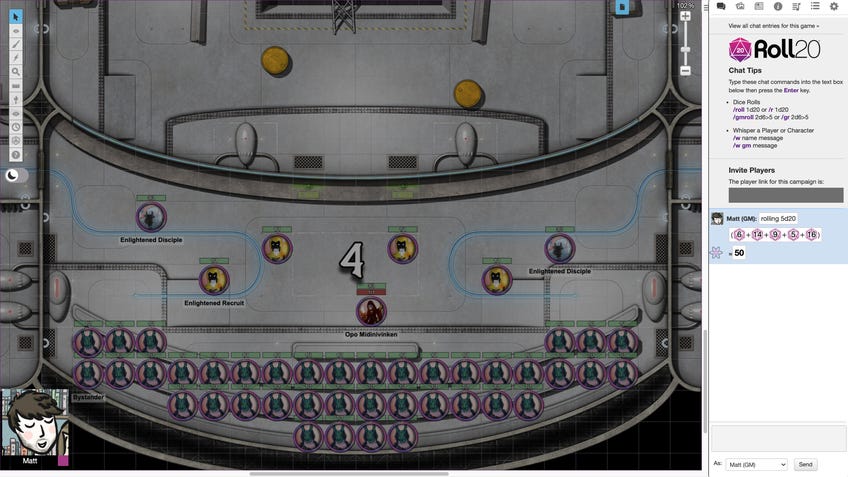
Created in 2012 by three college roommates, Roll20 has grown to a reported eight million users or more. It is structured as a 2D display with three layers: a map layer, icon layer and hidden GM layer that can be revealed to players. There are a slew of additional features such as drawing, music and - probably most importantly - customisable character sheets and macros.
Its pros include the fact that it’s widely familiar amongst RPG veterans, has a solid text chat functionality - as well as a dice roller - and its free option suits most people’s needs. It also boasts easy player connectivity, widespread community and industry support and planned integration with OneBookShelf to connect digital RPG collections from the likes of DriveThruRPG.
One the flip side, creating custom character sheets and macros is both challenging and clunky, file handling is unintuitive, some UI elements (video/audio chat, zoom feature, etc) remain glitchy and the interface feels dated overall.
- Price: Free, $49.99/year or $99.99/year (slightly pricier monthly options are also available)
- Where it runs: Online only via any desktop browser and a limited mobile app
2. Fantasy Grounds
Ultimate control
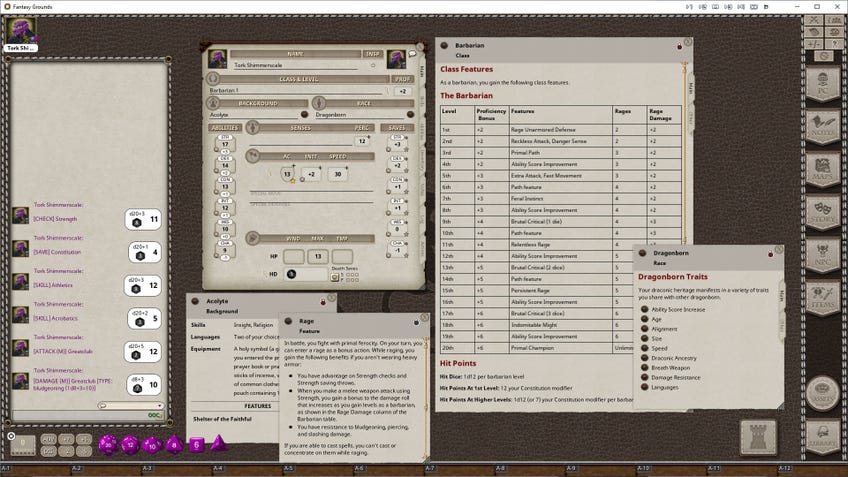
Fantasy Grounds is a favourite virtual tabletop amongst those who enjoy a platform that gives you full customisation of your maps and character sheets, as well as ownership and control of all assets used in a game. It is a program that installs on your computer’s hard drive, then connects to the internet to play with others.
Other benefits include automations for more complex games, unlimited local storage, broad community and industry support, no subscription and a relatively modern feel to the UI. Cons include a steep learning curve due to a complex interface, somewhat common online connection issues and a relatively high upfront cost.
- Price: Free demo, then a one-time payment of $39 (all players need a licence) or $149 (players don’t need a licence)
- Where it runs: Windows, Mac or Linux
3. Foundry
A shinier, newer Fantasy Grounds
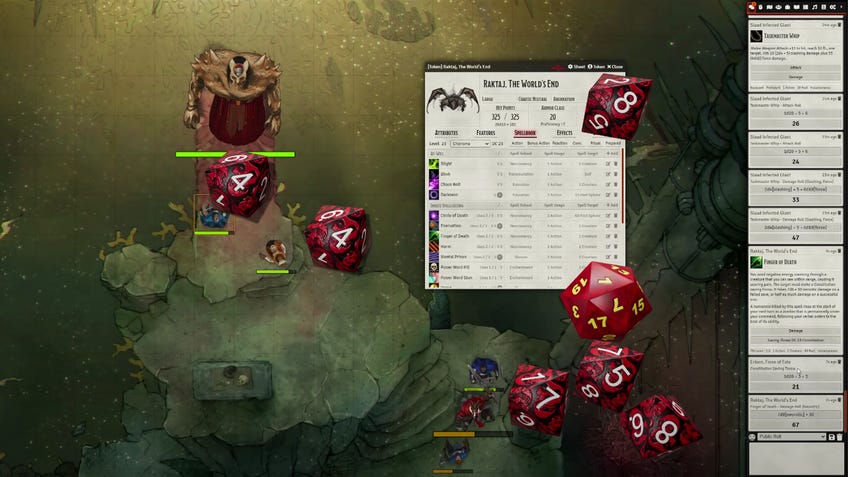
Foundry was officially released only a couple years ago and reports having only around 20,000 users at last count. The virtual tabletop builds on the best features of its competitor Fantasy Grounds but has a more modern and intuitive user interface.
Players can join through a browser instead of connecting to the GM’s computer. Its modern interface is fairly easy to learn, there are great customisation options, unlimited local hard drive storage, simple pricing structure with no subscription, fast-growing market of community content and players can connect to a game through a browser. However, the interface can still require hours to learn and its content library isn’t as large as Roll20 or Fantasy Grounds.
- Price: $50
- Where it runs: Windows, Mac or Linux
4. Owlbear Rodeo
Legendary simplicity
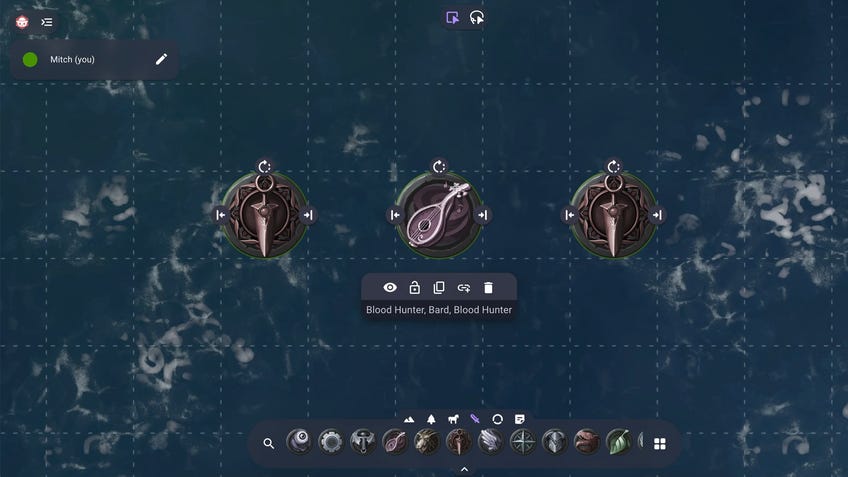
This oddly-named virtual tabletop is for those who just need to display a map with some icons and maybe use some fog-of-war, all without a subscription, login, licences or connection issues. Owlbear Rodeo's website-based VTT is absolutely free and stores all your assets on your local hard drive. It features a very easy-to-learn interface, no fee or payments of any sort, and ease of connectivity for players. It’s also drawing tablet-ready.
Unfortunately its features are strictly limited to maps and tokens and file management (such as folders) is limited. Since all the game data is stored in your browser’s cache, if you accidentally clear that cache, all is lost. And frequently backing up your browser’s cache is slightly awkward.
- Price: Free
- Where it runs: Any desktop or mobile browser, with game data saved to the browser’s cache
5. Tabletop Simulator
The ultimate sandbox
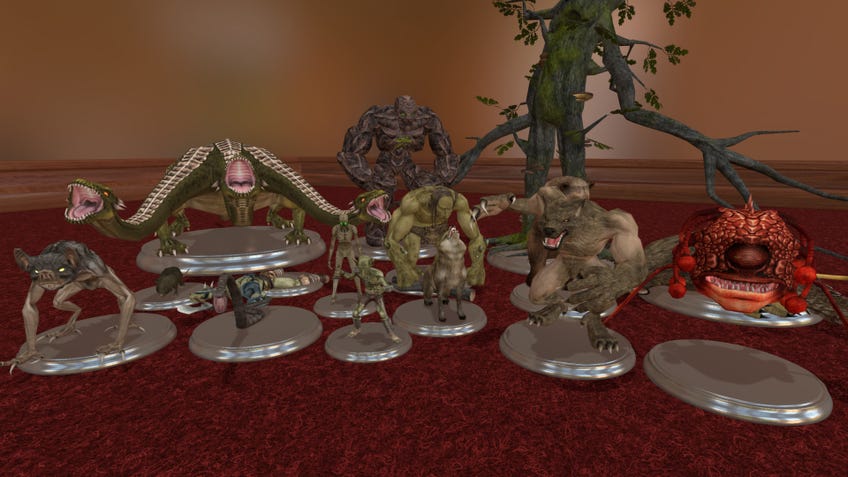
For many years now, players of board and card games who wanted to play online with their friends have used Tabletop Simulator. In more recent years, RPG gamers have contributed a massive number of 3D maps and assets to the Steam Workshop, where you can buy official packs or download many user-created mods for free.
The environment itself is essentially an open 3D sandbox with customisable collision and gravity physics, so game pieces and cards can look like they exist on an actual virtual surface. Notably, the platform supports VR goggles. The sky's the limit with 3D-rendered game environments of every type and there are a dizzying number of community mods available. However, the interface can be pretty strange and unintuitive, and all players are required to own a computer and the app to participate in a game.
- Price: $19.99
- Where it runs: Windows, Mac or Linux via Steam
6. Above VTT
Connect to D&D Beyond
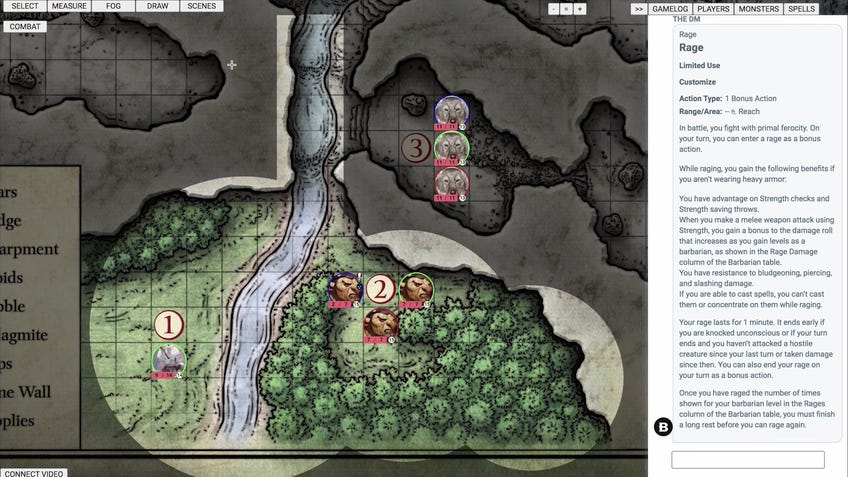
Above VTT is a Chrome browser extension that allows you to connect to your D&D Beyond account. It draws upon hundreds of free maps from D&D Beyond, animated maps from YouTube and really any map online that you have a URL for. It also incorporates all of the modules that you have unlocked on your D&D Beyond account, as well as character sheet integration for everyone added to a game through D&D Beyond. The plugin runs smoothly and it’s easy for players to connect to a game.
Drawbacks include the fact that it’s limited to D&D Beyond, limited to the Chrome browser, has no advanced features like video or voice chat, and has no offline data storage.
- Price: Free
- Where it runs: Chrome desktop browser
7. Shmeppy
A digital dry-erase board
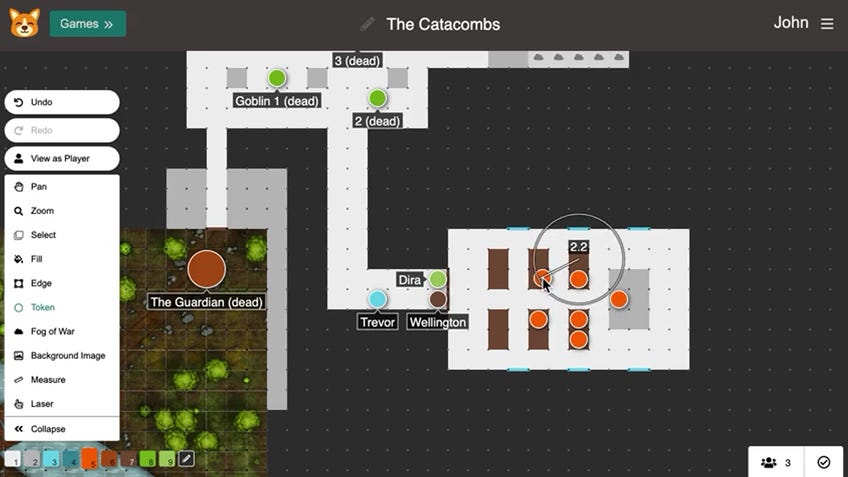
Anyone who has worked as part of a team in a collaborative environment has at this point probably experienced a virtual “whiteboard”. The concept of Shmeppy is simply that: a clean, intuitive online whiteboard with drastically simple drawing tools and a dot grid. The simplicity rivals even owlbear.rodeo, and aims to please fans of brutal simplicity. It requires mere moments to learn, enables improvised maps, has a fog of war and is easy for players to connect to.
Potential drawbacks are that a monthly subscription is required for the GM (players connect for free), drawn maps are simplistic almost to the point of being abstract and the platform is limited to maps and tokens.
- Price: $4.99/month for GMs, free for players
- Where it runs: Online only, any desktop browser or mobile
8. Astral
Roleplay in peace
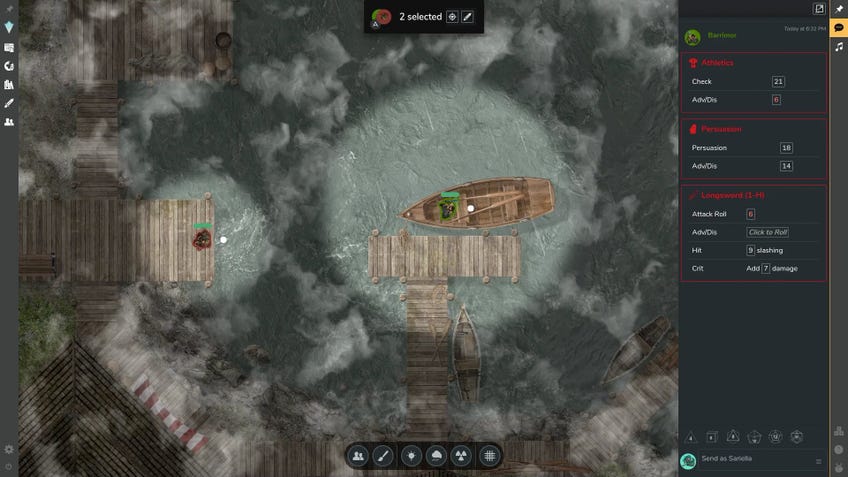
The biggest crash-and-burn virtual tabletop in recent years was Astral, a promising platform that got its start in 2017 under the name PowerVTT. Four years later, it grew to one of the most highly anticipated (and advertised) VTTs, poised to take on Roll20. And then it was all over. An official announcement posted in October 2021 stated that it was not fully shutting down, but rather “leaving active development”.
That being said, its content marketplace was closed and all yearly subscriptions were converted to monthly subscriptions. Astral was partnered with OneBookShelf, the parent company that owns DriveThruRPG. After OBS announced its merger with Roll20 in July 2022 it became clear that Astral’s fate was well and truly sealed.
For what it’s worth, Astral boasts advanced visuals and map animations as well as character sheets for several major RPGs. On the downside, as mentioned, all future development has ceased and its content marketplace is no longer open.
- Price: Free, $5.99/month, $9.99/month
- Where it runs: Any desktop browser or mobile
